12 start with N start with N
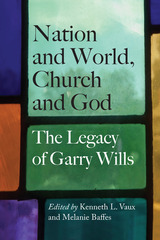
Garry Wills is the polymathic public intellectual bemoaned as missing from American letters. A professor emeritus at Northwestern University, he has built upon his early studies in classics and patristics, while bringing his considerable intellect to bear on American culture, politics, and religion, notably through provocative articles and books on wars, past and present presidents, and the Catholic Church Wills has distinguished himself in the crowded field of Civil War history; fearlessly taken on the legacies of Richard Nixon and Ronald Reagan, among other presidents; and offered a critical voice in many fraught ethical discussions, especially in the areas of war and peace.
Nation and World, Church and God gathers original critical reflections by leading writers and scholars on Garry Wills’s life work. Organized around the themes of “Classics,” “Civil War,” “War and Peace,” and “Theology, Church, and the Arts,” the book reflects the cultural acumen, fine-grained political analysis, ethical candor, and theological wisdom of one of America’s most prolific writers.
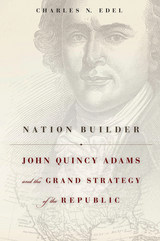
“America goes not abroad, in search of monsters to destroy”—John Quincy Adams’s famous words are often quoted to justify noninterference in other nations’ affairs. Yet when he spoke them, Adams was not advocating neutrality or passivity but rather outlining a national policy that balanced democratic idealism with a pragmatic understanding of the young republic’s capabilities and limitations. America’s rise from a confederation of revolutionary colonies to a world power is often treated as inevitable, but Charles N. Edel’s provocative biography of Adams argues that he served as the central architect of a grand strategy that shaped America’s rise. Adams’s particular combination of ideas and policies made him a critical link between the founding generation and the Civil War–era nation of Lincoln.
Examining Adams’s service as senator, diplomat, secretary of state, president, and congressman, Edel’s study of this extraordinary figure reveals a brilliant but stubborn man who was both visionary prophet and hard-nosed politician. Adams’s ambitions on behalf of America’s interests, combined with a shrewd understanding of how to counter the threats arrayed against them, allowed him to craft a multitiered policy to insulate the nation from European quarrels, expand U.S. territory, harness natural resources, develop domestic infrastructure, education, and commerce, and transform the United States into a model of progress and liberty respected throughout the world.
While Adams did not live to see all of his strategy fulfilled, his vision shaped the nation’s agenda for decades afterward and continues to resonate as America pursues its place in the twenty-first-century world.
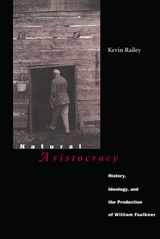
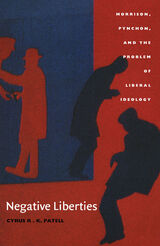
Pynchon and Morrison reveal the official narrative of individualism as encompassing a complex structure of contradiction held in abeyance. This narrative imagines that the goals of the individual are not at odds with the goals of the family or society and in fact obscures the existence of an unholy truce between individual liberty and forms of oppression. By bringing these two fiction writers into a discourse dominated by Ralph Waldo Emerson, Isaiah Berlin, John Rawls, George Kateb, Robert Bellah, and Michael Sandel, Patell unmasks the ways in which contemporary U.S. culture has not fully shed the oppressive patterns of reasoning handed down by the slaveholding culture from which American individualism emerged.
With its interdisciplinary approach, Negative Liberties will appeal to students and scholars of American literature, culture, sociology, and politics.
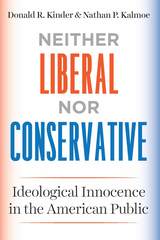
Well, American elites disagree fiercely. But average Americans do not. This, at least, was the position staked out by Philip Converse in his famous essay on belief systems, which drew on surveys carried out during the Eisenhower Era to conclude that most Americans were innocent of ideology. In Neither Liberal nor Conservative, Donald Kinder and
Nathan Kalmoe argue that ideological innocence applies nearly as well to the current state of American public opinion. Real liberals and real conservatives are found in impressive numbers only among those who are deeply engaged in political life. The ideological battles between American political elites show up as scattered skirmishes in the general public, if they show up at all.
If ideology is out of reach for all but a few who are deeply and seriously engaged in political life, how do Americans decide whom to elect president; whether affirmative action is good or bad? Kinder and Kalmoe offer a persuasive group-centered answer. Political preferences arise less from ideological differences than from the attachments and antagonisms of group life.
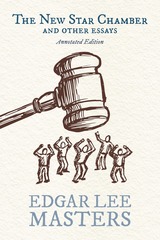
Coedited by noted Masters scholar, Jason Stacy, and his class, “Editing History,” this annotated edition of Edgar Lee Masters’s The New Star Chamber and Other Essays reappears at a perilous time in US history, when large corporations and overseas conflicts once again threaten the integrity of American rights and liberties, and the United States still finds itself beholden to corporate power and the legacy of imperial hubris. In speaking to his times, Masters also speaks to ours.
These thirteen essays lay bare the political ideology that informed Spoon River Anthology. Masters argues that the dangerous imperialism championed by then-President Theodore Roosevelt was rooted in the Constitution itself. By debating the ethics of the Philippine-American War, criticizing Hamiltonian centralization of government, and extolling the virtues of Jeffersonian individualism, Masters elucidates the ways in which America had strayed from its constitutional morals and from democracy itself. The result is a compelling critique of corporate capitalism and burgeoning American imperialism, as well as an exemplary source for understanding its complicated author in the midst of his transformation from urban lawyer to poet of rural America.
In print again for the first time since 1904, this edition includes an introduction and historical annotations throughout. Edited and annotated by students at Southern Illinois University Edwardsville, and designed and illustrated by students at Southern Illinois University Carbondale, this volume traces economic and political pathologies to the origins of the American republic. The New Star Chamber and Other Essays is as vital now as it was over 100 years ago.
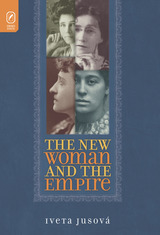
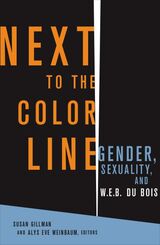
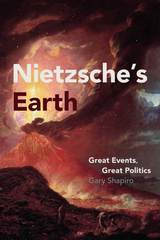
Shapiro explores Nietzsche’s rejection of historical inevitability and its idea of the end of history. He highlights Nietzsche’s prescient vision of today’s massive human mobility and his criticism of the nation state’s desperate efforts to sustain its exclusive rule by declaring emergencies and states of exception. Shapiro then explores Nietzsche’s vision of a transformed garden earth and the ways it sketches an aesthetic of the Anthropocene. He concludes with an explanation of the deep political structure of Nietzsche’s “philosophy of the Antichrist,” by relating it to traditional political theology. By triangulating Nietzsche between his time and ours, between Bismarck’s Germany and post-9/11 America, Nietzsche’s Earth invites readers to rethink not just the philosopher himself but the very direction of human history.
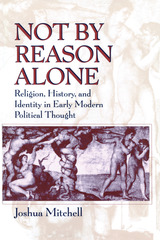
This erudite and ambitious work crosses disciplinary boundaries to expose unsuspected connections between political theory, religion, and history. In doing so, it offers a view of modern political thought undistorted by conventional distinctions between the ancient and the modern, and between the religious and the political.
"Original. . . . A delight to read a political philosopher who takes the theologies of Hobbes and Locke seriously." —J. M. Porter, Canadian Journal of History
"Mitchell's argument both illuminates and fascinates. . . . An arresting, even stunning, contribution to our study of modern political thought."—William R. Stevenson, Jr., Christian Scholar's Review
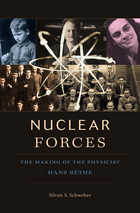
On the fiftieth anniversary of Hiroshima, Nobel-winning physicist Hans Bethe called on his fellow scientists to stop working on weapons of mass destruction. What drove Bethe, the head of Theoretical Physics at Los Alamos during the Manhattan Project, to renounce the weaponry he had once worked so tirelessly to create? That is one of the questions answered by Nuclear Forces, a riveting biography of Bethe’s early life and development as both a scientist and a man of principle.
As Silvan Schweber follows Bethe from his childhood in Germany, to laboratories in Italy and England, and on to Cornell University, he shows how these differing environments were reflected in the kind of physics Bethe produced. Many of the young quantum physicists in the 1930s, including Bethe, had Jewish roots, and Schweber considers how Liberal Judaism in Germany helps explain their remarkable contributions. A portrait emerges of a man whose strategy for staying on top of a deeply hierarchical field was to tackle only those problems he knew he could solve.
Bethe’s emotional maturation was shaped by his father and by two women of Jewish background: his overly possessive mother and his wife, who would later serve as an ethical touchstone during the turbulent years he spent designing nuclear bombs. Situating Bethe in the context of the various communities where he worked, Schweber provides a full picture of prewar developments in physics that changed the modern world, and of a scientist shaped by the unprecedented moral dilemmas those developments in turn created.
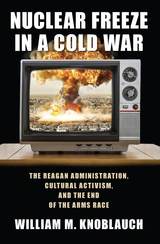
Alarmed, the Reagan administration worked to co-opt the rhetoric of the nuclear freeze and contain antinuclear activism. Recently declassified White House memoranda reveal a concerted campaign to defeat activists' efforts. In this book, William M. Knoblauch examines these new sources, as well as the influence of notable personalities like Carl Sagan and popular culture such as the film The Day After, to demonstrate how cultural activism ultimately influenced the administration's shift in rhetoric and, in time, its stance on the arms race.
READERS
Browse our collection.
PUBLISHERS
See BiblioVault's publisher services.
STUDENT SERVICES
Files for college accessibility offices.
UChicago Accessibility Resources
home | accessibility | search | about | contact us
BiblioVault ® 2001 - 2024
The University of Chicago Press









